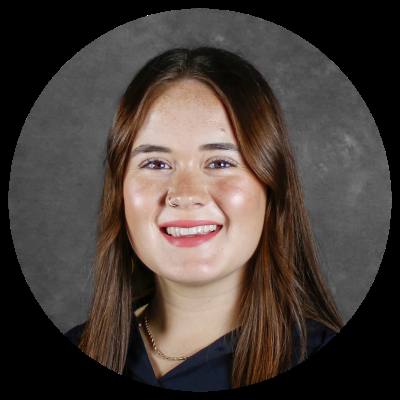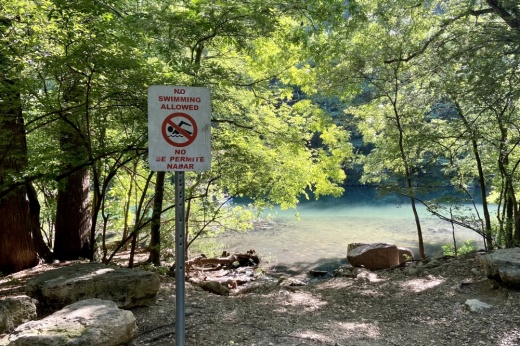“It was getting the nutrient enrichment, and the water is warming up back there,” said Brent Bellinger, Watershed Protection Department environmental scientist senior. “It’s just right for it.”
Recent hot temperatures and low water flow through the west side of Red Bud Isle has allowed its blue-green algae or Cyanobacteria to produce toxins dangerous to the health of people and pets, Bellinger said. Lab results from a May 30 algae sample found neurotoxin Dihydroanatoxin A. Now, the Austin Watershed Protection Department is spending $300,000 on Phoslock treatment to stop the spread.
“It's also a very toxic molecule,” Bellinger said. “Everything goes haywire if you have that in your system.”
In 2019, five dogs died due to a toxic algae bloom at Lady Bird Lake. As Dihydroanatoxin A has been detected in the algae and not the water, contamination can only come from ingesting the algae, putting pets more at risk than humans, Bellinger said.
“We're fortunate that with our messaging, education and outreach, we haven't had any more dog deaths at Lady Bird Lake since 2019, even though we've had this toxin present for the last three years,” Bellinger said. “So people are being conscientious when they go out.”
To slow the spread of harmful algae, the Austin Watershed Protection Department will apply Phoslock at two sites on Lady Bird Lake. The clay material binds to phosphorus, a key food source for algae, making it unavailable to use.
“If they're limited in the amount of phosphorus that's coming in, it makes it tough for them to grow into these large proliferations,” Bellinger said. “And potentially, it's too metabolically expensive to produce toxins.”
The department will reapply Phoslock to Red Bud Isle on June 15, as the last treatment took place during the 2021 summer, Bellinger said. The substance will also be applied to Lady Bird Lake’s north shore, from I-35 to Festival Beach, on June 13-14, due to toxins found in algae samples last year.
Each location will receive 30,000 pounds of Phoslock, according to the department and a second treatment late summer, Bellinger said.
While swimming has been banned on Lady Bird Lake since 1964, residents should avoid contact with algae and rinse themselves after swimming in all natural bodies of water, the department said. Owners should also rinse their dogs and make sure they do not lick their fur before.
“Really just kind of be mindful when you visit a spot,” Bellinger said. “Look at the water.”
Warm, stagnant, scum or algae-filled water should be avoided, as well as water where it has rained in the last three days or areas where many dogs are present, the department said.
“It's one of the great things about Austin,” Bellinger said about Austin’s waterways. “It's just being mindful of where you're at, where you're going and what things look like.”





